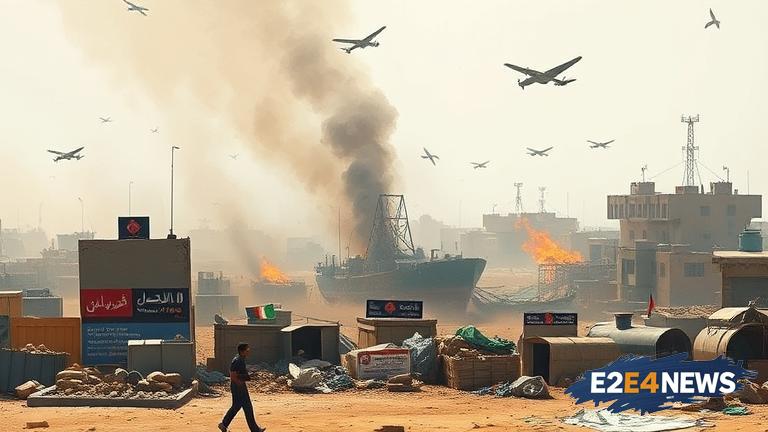The Israeli military has announced that it will begin airdropping aid to the Gaza Strip, where a growing humanitarian crisis is unfolding. The decision comes as the death toll from Israeli airstrikes and gunshots continues to rise, with at least 53 people killed in recent days. The Gaza Strip, which has been under Israeli blockade for over a decade, is facing severe shortages of food, water, and medical supplies. The Israeli military has been carrying out airstrikes and artillery bombardments in response to rocket fire from Palestinian militant groups. However, the strikes have also hit civilian targets, including homes, hospitals, and schools. The United Nations has warned of a catastrophic humanitarian crisis in Gaza, where over 2 million people are in need of assistance. The airdrops of aid are seen as a rare concession by the Israeli military, which has faced criticism for its handling of the crisis. However, many Palestinians remain skeptical, citing concerns that the aid may not reach those who need it most. The situation on the ground remains dire, with reports of families going without food or water for days. The Israeli military has also been accused of using disproportionate force, with many civilians caught in the crossfire. The international community has called for a ceasefire and an end to the blockade, which has been in place since 2007. The humanitarian crisis in Gaza has sparked widespread condemnation, with many world leaders calling for an immediate end to the violence. Despite the airdrops of aid, the situation in Gaza remains precarious, with many fearing that the crisis will only continue to escalate. The Israeli military has said that it will continue to target Palestinian militant groups, which it accuses of firing rockets into Israel. However, many Palestinians argue that the Israeli military’s actions are a form of collective punishment, which is prohibited under international law. As the crisis deepens, there are growing concerns about the long-term impact on the people of Gaza, who have already suffered for years under the blockade. The airdrops of aid are seen as a small step towards addressing the crisis, but many argue that a more comprehensive solution is needed to address the root causes of the conflict.
